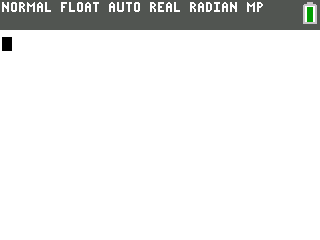mr womp womp wrote:
PT_ wrote:
☑ Custom name, after {i}, max length of 8
Pretty easy to implement
Pretty easy to implement
Could you elaborate on this please? I don't know what has just been implemented
Is this regular basic or a something you've added in?
KermMartian wrote:
It looks like you didn't post about it in this thread yet; on IRC, you proposed the following two possible header formats, where {i} is the imaginary i, sqrt(-1):
Code:
To make it easier to detect whether a program is ICE source code, and to make it easier for you to parse descriptions to boot, I propose:
Code:
In fact, you might want to consider a third option as well:
Code:
Code:
{i}PROGNAME
{i}PROGNAME DESCRIPTION OF MY PROGRAMCode:
{i}PROGNAME
{i}PROGNAME
{i}DESCRIPTION OF MY PROGRAMCode:
{i}PROGNAME
{i}DESCRIPTION OF MY PROGRAM
{i}DCE ICON



























